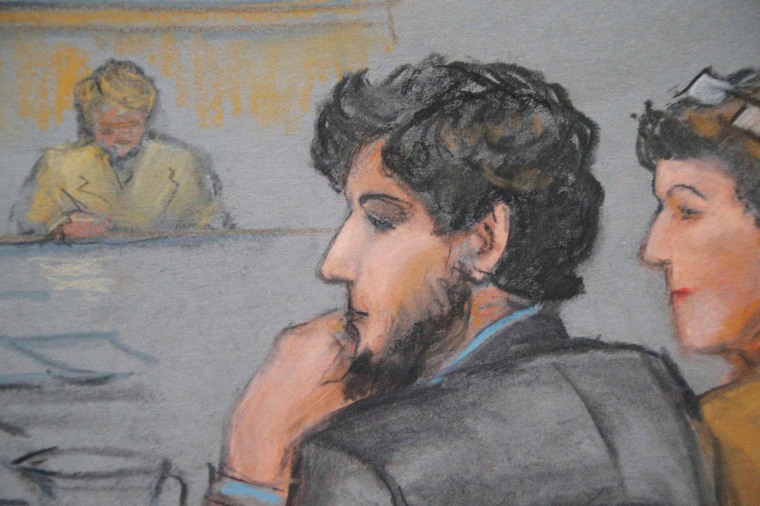A federal appeals court in Massachusetts has denied a request by lawyers of Dzhokhar Tsarnaev to halt his trial and change the venue from Boston.
Tsarnaev is accused of bombing the 2013 Boston Marathon and faces the death penalty.
The appeals court judgment was filed late Friday evening. The panel of three judges ruled 2-1 that any high-profile case will receive media attention and potential jurors will be aware of the case.
"Knowledge, however, does not equate to disqualifying prejudice. Distinguishing between the two is at the heart of the jury selection process," the judges wrote in the opinion.
Lawyers for the defense have tried several times to get the trial moved away from Boston, arguing that the jury pool is irrevocably tainted by the strong emotions in the aftermath of the bombing that killed three people and injured more than 260.
"The attack was viewed as an attack on the marathon and on the city itself," one of the lawyers, Judith Mizner, told the three-judge panel of the First U.S. Circuit Court of Appeals last week.
One of the three judges agreed. Judge Juan Torruella wrote in a dissent that "If a change of venue is not required in a case like this, I cannot imagine a case where it would be.”
"Boston has been terrorized and victimized, and deep-seated prejudice against those responsible permeates daily life," he wrote.
The other judges said similar requests have been denied in trials after other terror attacks, like the 1993 World Trade Center bombing in New York City, and those decisions were later upheld.
IN-DEPTH
- Tsarnaev Lawyers Say Not Enough Minorities in Jury Pool
Boston Bombing: Dzhokhar Tsarnaev Makes New Push to Move Case
